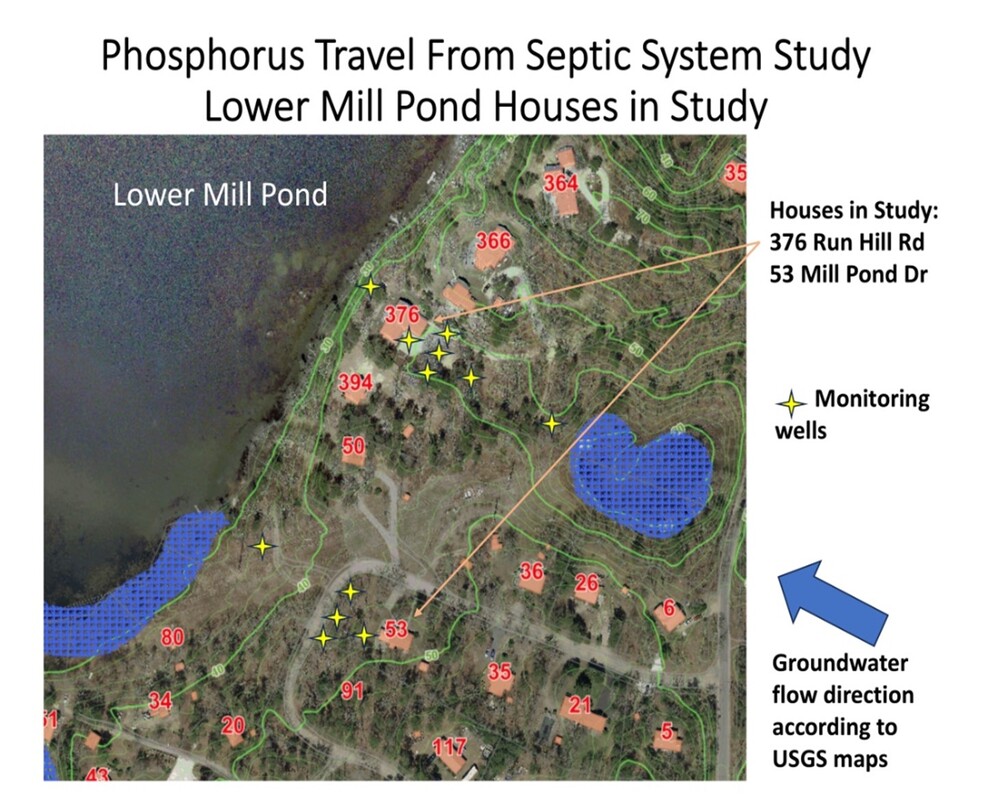
The Brewster Ponds Coalition is engaged in a study to determine how far nutrients, notably phosphorus, travel from septic system leach fields in groundwater towards ponds. Thus, the “Septic System Plume Mapping and Phosphorus Travel Study” will determine impacts of septic systems on ponds, where phosphorus is the key nutrient that leads to cyanobacteria and algal blooms. In particular, the study will help determine which septic systems might impact ponds, considering soil adsorption of nutrients, distance from ponds, leach field elevation above groundwater, and home occupancy.
The groundwater levels will be checked to assure groundwater flow directions, and the water will be analyzed for a variety of parameters, including phosphorus, nitrogen, chlorides, pH, and dissolved oxygen. The project is being supervised by the Horsley Witten Group (environmental consultants) and well sampling is being done by Massachusetts Alternative Septic System Test Center (MASSTC) personnel. The Town of Brewster Water Planning Task Force, Board of Health, and Conservation Commission have expressed support for the study; people concerned about the impact of septic systems all want to see the results.
Importance of the Results
The results could influence decisions about where new septic systems may be located and which septic systems might not need measures to protect ponds, such as upgrades or connections to sewers. The results are of interest to not only Brewster, but also to all towns on the Cape, as well as other areas where there are lakes and septic systems in sandy soil, since the impact of septic systems on ponds is a common concern.
